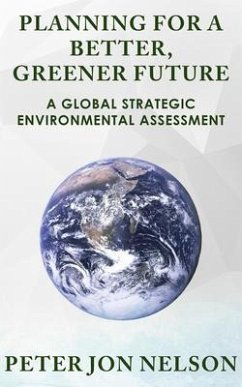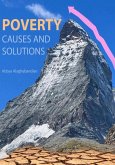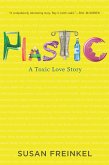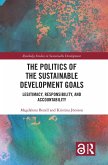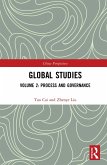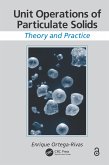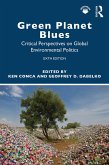Do you sometimes feel that your opinion counts for nothing - Even when it relates to the most important challenges facing the planet and the human race. This book invites you to have your say!
The framework of Strategic Environmental Assessment is used to examine the global challenges posed by biodiversity loss, climate change, water shortages, poverty, poor health, food insecurity, lack of education, migration, civil rights abuse, racism and ethical conflicts and the impact of new technologies. The SEA then asks the question - What would it take to place the World on a more equitable foundation, without which any efforts to bring about lasting change in the physical environment are unlikely to succeed?
Humans face many dilemmas, including a marked division of opinion as to the cause and significance of these events. Optimists are convinced that human ingenuity can resolve all challenges; pessimists are not so sure.
In the final chapters, the case is presented for radical reform of the United Nations, the formation of an international peoples' assembly to underpin the role of governments and the voting of effective powers and funds to prevent genocide, eliminate poverty and other injustices and to police climate change and biodiversity policies of member states.
The concept of using SEA to give the youth of all nations the chance to plan their own futures is also expounded under the Golden Braid SEAs for 2050 Initiative. It is open to readers to agree, disagree or propose their own solutions. Please help to make a difference
--------------------
Peter Jon Nelson lives in Bristol in the United Kingdom. He is an environmental scientist and land use planner and has spent most of the last twenty years working on sustainable development studies and projects in Africa. He is also the founder of the Tasso Island Ecotourism Project in Sierra Leone and Secretary to the Gladi-Gladi Trust.
The framework of Strategic Environmental Assessment is used to examine the global challenges posed by biodiversity loss, climate change, water shortages, poverty, poor health, food insecurity, lack of education, migration, civil rights abuse, racism and ethical conflicts and the impact of new technologies. The SEA then asks the question - What would it take to place the World on a more equitable foundation, without which any efforts to bring about lasting change in the physical environment are unlikely to succeed?
Humans face many dilemmas, including a marked division of opinion as to the cause and significance of these events. Optimists are convinced that human ingenuity can resolve all challenges; pessimists are not so sure.
In the final chapters, the case is presented for radical reform of the United Nations, the formation of an international peoples' assembly to underpin the role of governments and the voting of effective powers and funds to prevent genocide, eliminate poverty and other injustices and to police climate change and biodiversity policies of member states.
The concept of using SEA to give the youth of all nations the chance to plan their own futures is also expounded under the Golden Braid SEAs for 2050 Initiative. It is open to readers to agree, disagree or propose their own solutions. Please help to make a difference
--------------------
Peter Jon Nelson lives in Bristol in the United Kingdom. He is an environmental scientist and land use planner and has spent most of the last twenty years working on sustainable development studies and projects in Africa. He is also the founder of the Tasso Island Ecotourism Project in Sierra Leone and Secretary to the Gladi-Gladi Trust.
Dieser Download kann aus rechtlichen Gründen nur mit Rechnungsadresse in A, D ausgeliefert werden.

